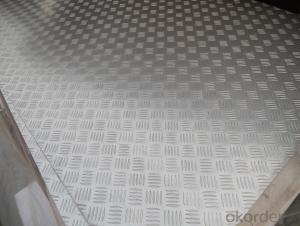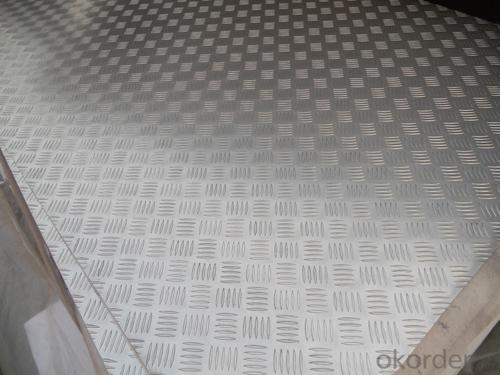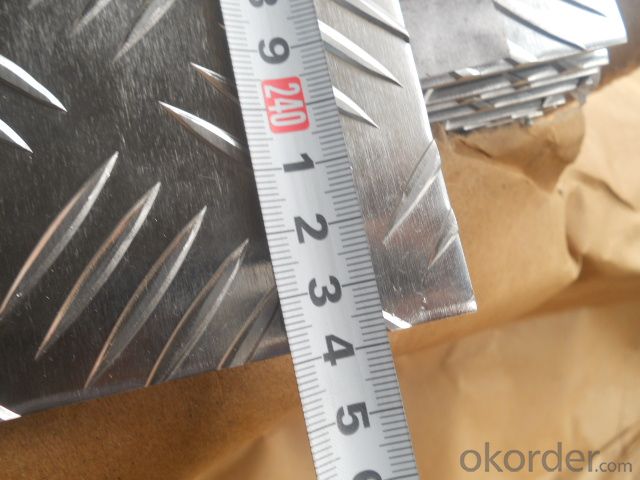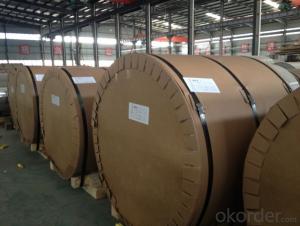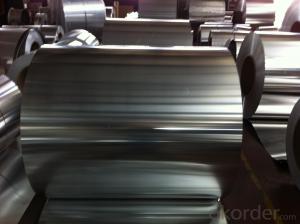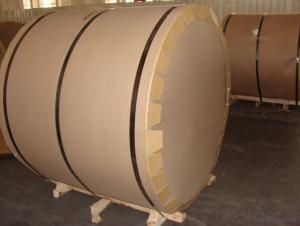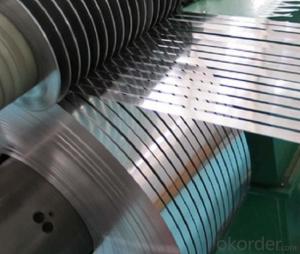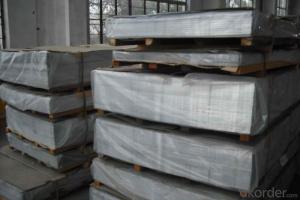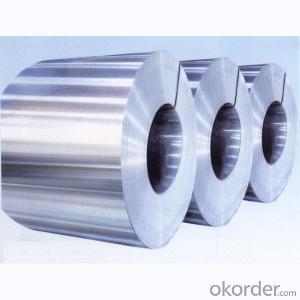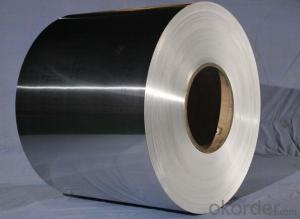Novelis Diamond and Embossed Mill Finished Aluminum Coils for Construction
- Loading Port:
- Shanghai
- Payment Terms:
- TT or LC
- Min Order Qty:
- 5 m.t.
- Supply Capability:
- 5000 m.t./month
OKorder Service Pledge
OKorder Financial Service
You Might Also Like
1.Structure of Diamond and Embossed Mill Finished Aluminium Coils for Construction
2. Main features of Diamond and Embossed Mill Finished Aluminium Coils for Construction
a.Competitive price---We have our own mills and can produce mill finished aluminium coils, so we can control the production cost better.
b.Professional after-sale service---We have more than 15 years exportation experience and you need not worry about the exporation problems.
c.Fast delivery time---We can control the delivery time within 35 days.
3. Image
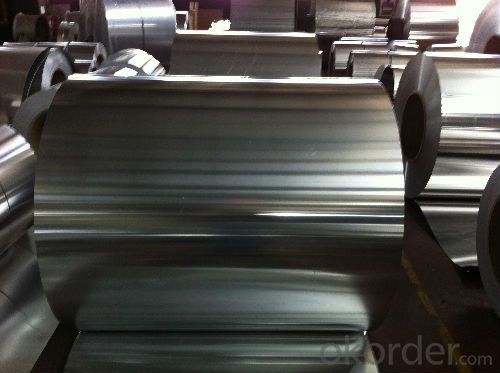
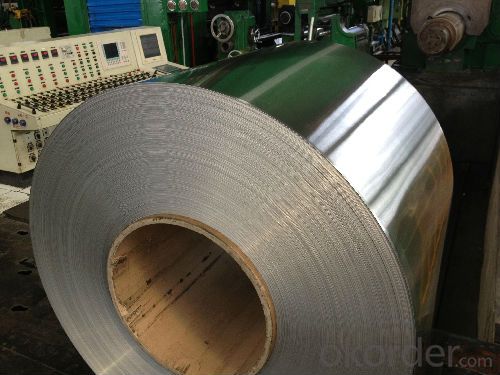
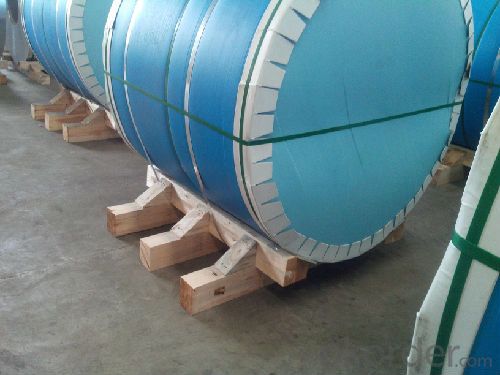
5.FAQ:
4. Product SpecificationAlloy Temper Thickness Width Weight AA1050 H18 0.2MM-3MM 1000MM-1800MM 2 TONS
What is the quality standard?
---Usually our standard is GB3880-2006
What is the largest width?
---It is 2300mm
What is the MOQ?
---Usually we can accept 80 tons.
- Q: Is it possible to recycle aluminum coils?
- <p>Yes, aluminum coil can be recycled. Recycling aluminum is a highly efficient and environmentally friendly process. It requires only 5% of the energy needed to produce new aluminum from raw materials. Recycled aluminum coils can be used to manufacture new aluminum products, reducing waste and conserving resources. The recycling process typically involves melting the aluminum, which can then be reshaped into new coils or other forms. This makes aluminum one of the most recycled materials in the world.</p>
- Q: What is the role of aluminum coils in the construction of ships?
- Aluminum coils are used in the construction of ships primarily for their lightweight and corrosion-resistant properties. They are commonly used in the fabrication of ship hulls, decks, and superstructures. The use of aluminum coils reduces the overall weight of the ship, improving fuel efficiency and increasing payload capacity. Additionally, the corrosion resistance of aluminum helps to prolong the lifespan of the ship, reducing maintenance costs in the long run.
- Q: I planned on making heart shaped pancakes for Valentine's day - is it ok to use aluminum foil as the mold for it? If so, how should I go about it?
- No, a stove top produces hot points. Better to just shape the pancakes with the spatula.
- Q: Can aluminum coils be used for architectural facades?
- Yes, aluminum coils can be used for architectural facades. Aluminum is a popular material for architectural applications due to its lightweight nature, durability, and flexibility. It can be easily molded and shaped into various forms, making it suitable for creating unique and aesthetically pleasing facades. Additionally, aluminum is resistant to corrosion, making it a long-lasting choice for exterior applications.
- Q: Can aluminum coils be used in architectural mesh applications?
- Aluminum coils have the capability to be utilized in various architectural mesh applications. Widely used in construction and architectural projects, aluminum is a lightweight and adaptable material. It offers numerous advantages for architectural mesh applications, including a high strength-to-weight ratio, resistance to corrosion, and ease of installation. By manipulating aluminum coils, intricate architectural mesh designs can be formed in different shapes and sizes. These coils can be woven, welded, or expanded to produce diverse patterns and textures, granting flexibility in design and customization. Aluminum coil-based architectural mesh applications are present in a wide array of structures such as facades, partitions, ceilings, sunscreens, and safety barriers. The mesh provides benefits such as enhancing aesthetics, ensuring privacy, shading from the sun, enabling ventilation, and even offering security. Not only does aluminum possess aesthetic and functional qualities, but it is also a sustainable choice for architectural mesh applications. It is a highly recyclable material, and its lightweight nature reduces costs associated with transportation and installation, making it an environmentally friendly option. In summary, due to their durability, adaptability, and sustainability, aluminum coils are an exceptional option for architectural mesh applications. Whether it is for commercial, residential, or public spaces, incorporating aluminum mesh can enhance the visual appeal and functionality of architectural designs.
- Q: How many companies have used aluminum coil?
- Too many. All the companies who make the aluminum products you have seen in daily life have used it. So it is hard to explain.
- Q: ok me and my father are trying to make thermite. we have the iron oxide but the aluminum we only have paste and i was wondering would it work the same as if we had the powder.and if it is differnt will it work for the thermite and what will it take to light it.
- How To Make Thermite
- Q: Can aluminum coils be used in electrical cables?
- Yes, aluminum coils can be used in electrical cables. Aluminum is commonly used as a conductor in high-voltage power transmission cables due to its lighter weight and lower cost compared to copper. However, it is important to note that aluminum has higher resistivity than copper, so larger cross-sectional areas are required to achieve the same level of conductivity. Additionally, special connectors and jointing techniques are necessary to account for the differences in thermal expansion and electrical conductivity between aluminum and other materials used in electrical systems.
- Q: A piece of aluminum foil 0.550 mm thick and 1.00 cm square is allowed to react with bromine to form aluminum bromide?a) How many mole of aluminum were used? ( The density of aluminum is 2.699 g/cm3.)I keep getting the same answer which I know is wrong. I used a formula to get the volume and then the mass to get the moles, but maybe this is wrong. Could someone explain the process. I got 4.32 x 10-1 mol Al, but the answer is 5.50 x 10-3 mol Al.
- 0.550mm = 0.055cm 0.055 x 1 x 1 = 0.055cc x 2.699g/cc = 0.1484g Al. Mol.mass = 27 g/mole 0.1484 ÷ 27 = 0.0055 moles. (5.5 x10-?)
- Q: How do aluminum coils contribute to noise reduction in buildings?
- The unique properties and installation techniques of aluminum coils can contribute to noise reduction in buildings. To begin, aluminum's density and ability to absorb and dampen sound waves make it a highly efficient sound insulator. When used as coil insulation, aluminum effectively blocks and reduces airborne noise transmission, minimizing the impact of external sounds on the building's interior. In addition to aluminum's inherent sound insulation properties, the installation of aluminum coils in buildings can further enhance noise reduction. By strategically placing the coils in areas where noise transmission is likely to occur, such as HVAC systems and ductwork, potential gaps or openings that could allow sound to travel are eliminated when tightly sealed with aluminum coils. Furthermore, aluminum coils act as a barrier to vibration and resonance noises. They can be installed around mechanical equipment or structural elements prone to vibration, effectively dampening these vibrations and preventing them from propagating throughout the building. This is particularly important in reducing low-frequency noises, which are typically more difficult to control and can significantly impact the comfort and productivity of occupants. Moreover, aluminum coils offer durability and longevity, ensuring their effectiveness in noise reduction over a long period. They are resistant to corrosion, moisture, and other environmental factors, maintaining their sound-insulating properties and preventing sound leakage. In conclusion, by combining the sound insulation properties of aluminum with strategic installation techniques, such as sealing gaps and dampening vibrations, aluminum coils play a vital role in reducing noise transmission in buildings. Their ability to absorb, block, and dampen sound waves makes them an effective solution for creating quieter and more comfortable indoor environments.
Send your message to us
Novelis Diamond and Embossed Mill Finished Aluminum Coils for Construction
- Loading Port:
- Shanghai
- Payment Terms:
- TT or LC
- Min Order Qty:
- 5 m.t.
- Supply Capability:
- 5000 m.t./month
OKorder Service Pledge
OKorder Financial Service
Similar products
Hot products
Hot Searches
Related keywords
